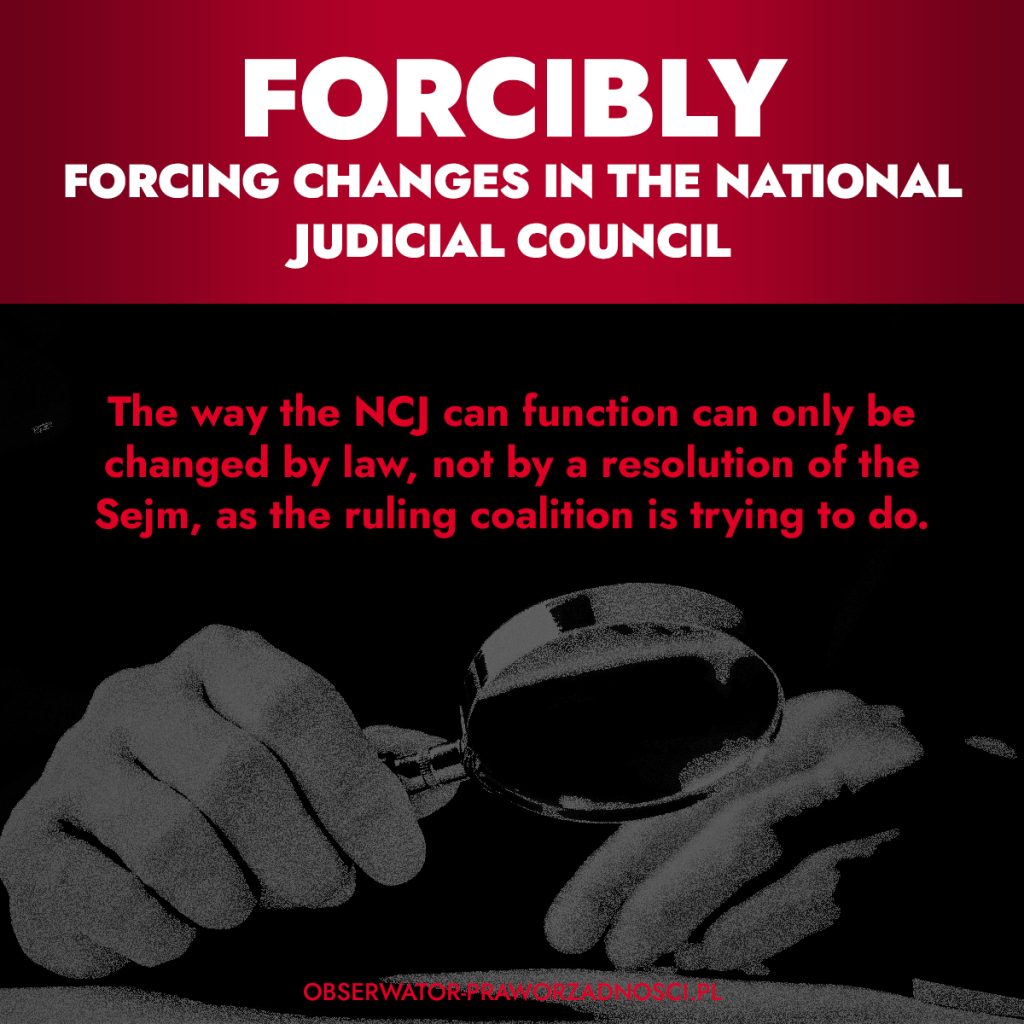Various circles associated with the current ruling coalition are attempting to challenge the status of the National Judiciary Council, as part of a broader campaign to allegedly “restore the rule of law”. The result of these efforts is a resolution adopted by the Sejm on December 20, 2023, stating that the Sejm’s resolutions from March 2018 to May 2022 regarding the selection of members of the NJC were adopted in flagrant violation of the Polish Constitution. Moreover, in the resolution, the Sejm calls on the thus elected members of the NJC to immediately cease their activities in this body.
It should be reiterated that under Article 186(1) of the Polish Constitution, the National Judiciary Council shall safeguard the independence of courts and judges. According to Article 187 (1) of the Polish Constitution, the National Judiciary Council consists of:
- the First President of the Supreme Court, the Minister of Justice, the President of the Supreme Administrative Court and the representative appointed by the President of the Republic;
- 15 judges chosen from the judges of the Supreme Court, common courts, administrative courts and military courts;
- 4 members chosen by the Sejm from its Deputies and 2 members chosen by the Senate from the Senators.
The aforementioned constitutional provision does not indicate at any point that the fifteen members chosen from among judges of the Supreme Court, common courts, administrative courts and military courts are to be elected by the judicial community itself. Indeed, the National Judiciary Council does not constitute a form of professional self-government (cf. Article 17(1) of the Polish Constitution).
Moreover, a bona fide interpretation of the cited provision of the Constitution of the Republic of Poland leads to the obvious conclusion that the authors of the constitution deliberately did not specify the method of selecting the fifteen members of the NJC referred to in Article 187(1)(2) of the Constitution of the Republic of Poland, leaving the ordinary legislators the freedom to do so. This was confirmed by the judgments of the Constitutional Tribunal of June 20, 2017 (ref. K 5/17) and of March 25, 2019 (ref. K 12/18). Therefore, nothing prevents the current ruling coalition from amending the law on the National Judiciary Council to the extent indicated. In accordance with the lex retro non agit rule derived from the principle of a democratic state under the rule of law, such changes could take effect from the next term of office of the designated members of the NCJ. On the other hand, it is impermissible to attempt to force changes in the composition of the NCJ, which is what the resolution adopted by the Sejm of the Republic of Poland is intended to achieve (similarly to the one adopted regarding the public media).




